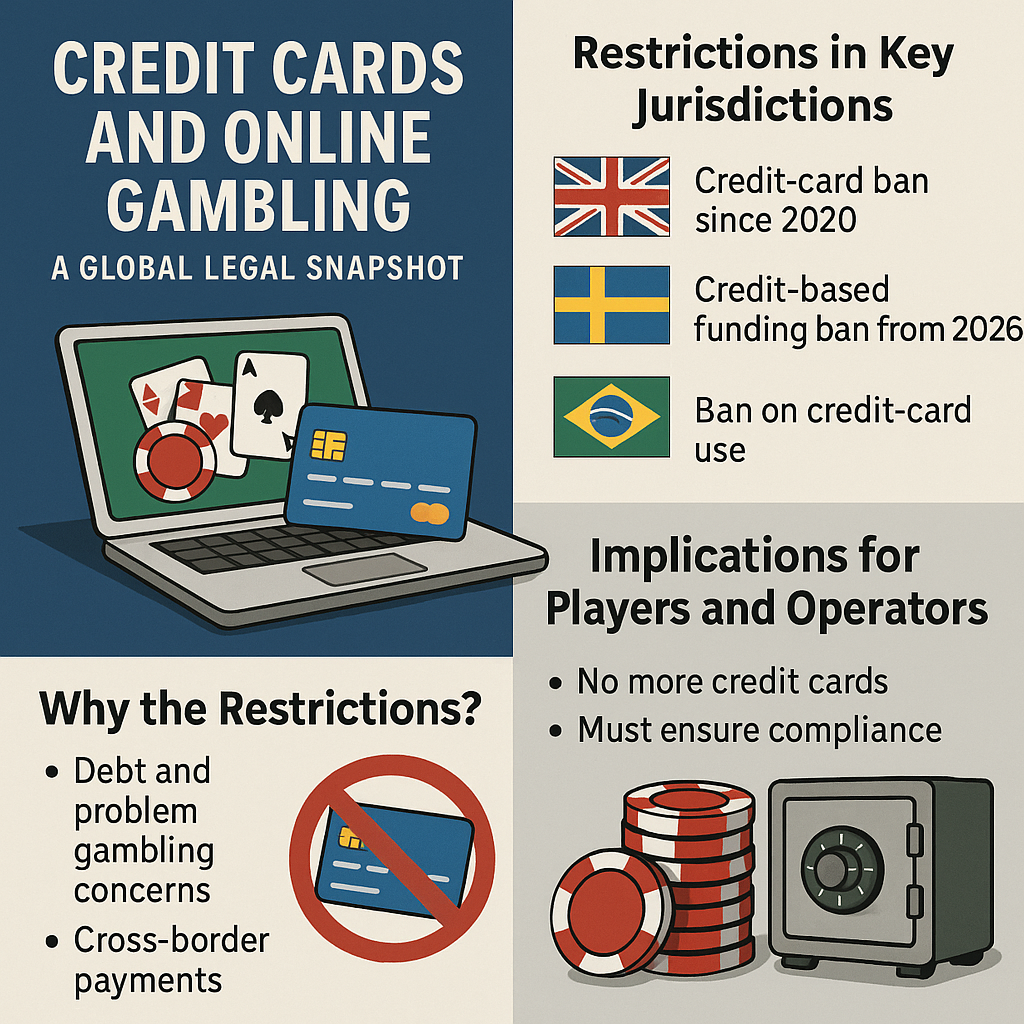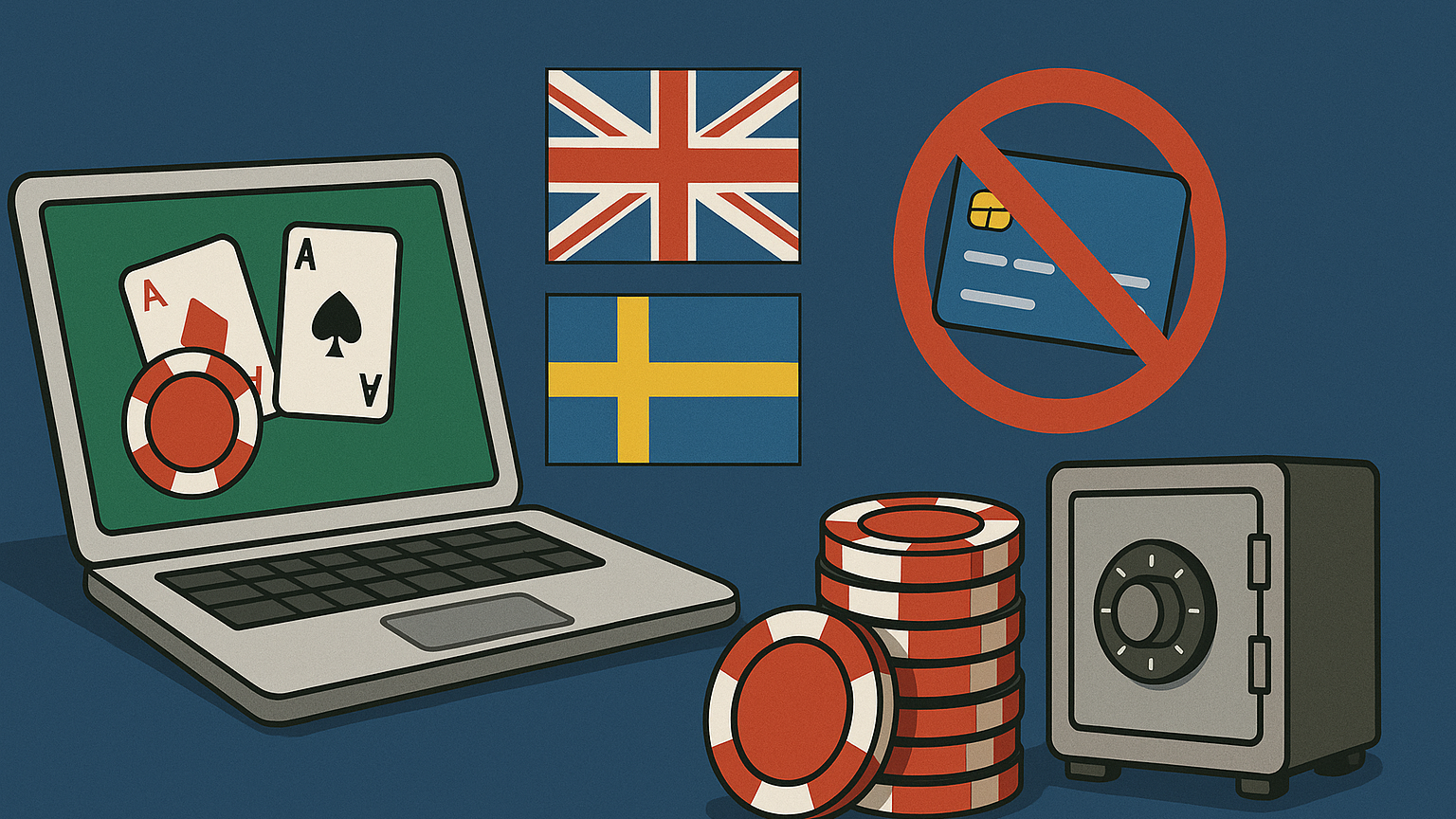Key Jurisdictions and Their Rules
In the United Kingdom, licensed online gambling operators have been banned from accepting credit-card payments since April 2020. The ban covers “remote and non-remote gambling” under licence, which includes online betting, online casino and other regulated gambling products. This means that online poker sites licensed in Great Britain cannot accept credit-card deposits from players.
Sweden has taken a strict stance. Since 2021, credit-card use for gambling has been prohibited for licensed platforms. A new legislative bill will enforce a blanket ban on all forms of credit-funded gambling - including credit cards, loans and overdrafts - from 1 April 2026. The rules apply to all forms of gambling under the Swedish regulatory regime, which covers casino, sports betting and other online gambling services.
In Brazil, efforts to regulate online betting include a prohibition on credit-card use for gambling or bets placed on credit or via loans. (Specific source not cited here.)
United States - at the federal level, the Unlawful Internet Gambling Enforcement Act of 2006 (UIGEA) prohibits gambling businesses from knowingly accepting payments - including credit cards - for unlawful Internet gambling. However, in the US regulation is fragmented, and whether an operator can accept credit‐card funded deposits depends on state law. The law affects poker sites in that they must ensure payment methods comply with federal and state rules.
Does It Affect Poker Sites?
Yes - in jurisdictions where the credit-card ban applies, online poker sites that operate under the local licence framework are subject to the same restrictions as casino or sports betting sites. For example:
In Great Britain, since the ban covers “gambling” broadly for licensed operators, licensed online poker sites cannot accept credit cards.
In Sweden, the upcoming ban on credit-based funding will apply equally to all gambling products under licence, which includes poker. Thus, poker sites that are legally licensed in those markets must ensure credit-card deposits are blocked or prohibited.

Why the Restrictions?
Regulators and governments cite several reasons for restricting credit-card funding of online gambling:
- Credit cards enable players to gamble with borrowed money, which may increase risk of harm.
- Credit-card payments are fast and irreversible, which poses a challenge for consumer cooling-off.
- Credit cards may facilitate cross-border payments to unregulated or offshore gambling sites.
- By limiting payment methods, regulators aim to push players toward regulated, transparent platforms.
Implementation and Enforcement Issues
While bans exist on paper, enforcement and practical outcomes vary. For example, evaluations of the credit-card ban in Great Britain show that the ban covers any payment via credit card to a licensed operator, including via money service businesses. However, some critics argue that players may simply switch to alternative payment methods, such as debit cards or e‐wallets. In Sweden, the proposed ban is described as closing a “loophole” where credit cards or third-party loans could still indirectly fund gambling.
Implications for Players and Operators
For online gamblers, the ban on credit-card use means fewer convenient payment options. They may need to rely on debit cards, bank transfers, e-wallets or prepaid methods. For operators, especially in regulated markets, compliance means ensuring payment-gateways reject credit-card commerce for gambling. Players can use debit cards instead and still enjoy the same perks from operators. Failure to be compliant can result in licensing issues or regulatory sanctions. For poker sites operating in those jurisdictions, this means adapting their payment acceptance policies as part of overall compliance.
Looking Ahead
The trend appears to lean toward further restrictions. Several jurisdictions are expanding oversight of player payments. The push to protect vulnerable players continues to drive regulation. As payment technology evolves (e.g., digital wallets, cryptocurrencies), the legal frameworks may adapt further. Regulators face the challenge of balancing innovation and player convenience with safety and fairness. Players, including those engaging in online poker, must be aware of the payment method rules in their region.




